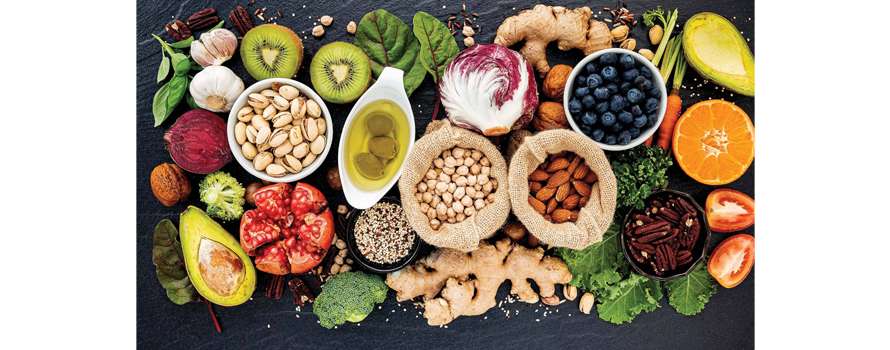According to Ayurveda, the word for swelling or inflammation in ancient Sanskrit is shotha. It is also called Shopha or Shvayathu in the scriptures. In essence, it addresses all types of swellings, from common localised ones to interior ones. Consider whether there is an inflammation if the ailment ends in “-itis.” Consider ailments such as meningitis, gingivitis, appendicitis, and dermatitis.
Shotha Samprapti – How Does Shotha Occur?
Ayurvedic remedies for inflammation focus on balancing the body’s Doshas (bioenergies), supporting digestive health, and reducing oxidative stress to promote overall well-being. It’s essential to consult with a qualified Ayurvedic practitioner before starting any new herbal regimen, especially if you have existing health conditions or are taking medications. Additionally, adopting a healthy lifestyle, including a balanced diet, regular exercise, stress management, and adequate sleep, can further support your body’s natural ability to reduce inflammation and maintain optimal health.
Types Of Shotha in Ayurveda – Flavors
Shotha comes in a variety of flavours, like ice cream! Not quite as delicious, but you get the idea. Here they are:
Vataja shotha – Expect joint pain to be the predominant feature. Imagine an occasion where the pain is the star. That is Vataja Shotha for you! It prefers to target your joints, and the swelling it causes will be mild, with rough and gritty skin on top. You might feel numb, and the swelling may come and go as if it had its own mind. It’s like a party guest who shows up and leaves whenever they want. And, guess what? The swelling worsens during the daylight hours.
Pittaja shotha – These will be soft, and stinky, and may cause heat and perspiration. Pittaja Shotha swelling will be soft and may exude some scent – yuck! Expect fever, giddiness, sweating, and other symptoms of inflammation.
Kaphaja shotha – These will be hard and heavy, and you may experience symptoms such as loss of appetite and poor digestion. will be stiff and hefty, and the colour may be faint. You may experience nausea, drowsiness, mandagni, poor digestion, and other indicators of Kapha imbalance.
Vata-pittaja shotha – When Vata and Pitta decide to team up. Double trouble, people!
Pitta-kaphaja shotha – When Pitta and Kapha combine forces. This may become interesting.
Kapha-vataja shota – When Kapha and Vata work together. So, this is simply more trouble, isn’t it?
Traidoshaja shotha – Vata, Pitta, and Kapha decide to have a party. Yeah, not pleasant at all.
Abhighataja shotha – Swelling resulting from trauma. Ouch! The swelling will be hot to the touch, red in colour, and as irritating as you can imagine.
Vishaja – Poisons and chemicals can create swellings. Keep an eye on that!
Causes Of Shotha – The Swelling Culprits
Shotha in Ayurveda isn’t some random party crasher. It is mainly caused by poor dietary and lifestyle habits, as well as exposure to certain events such as an accident or injury. Here is what could lead to a Shotha showdown:
Excessive alkaline foods include those containing baking soda, sour foods such as ferments and lemon juice, greasy, heavy foods, and spicy foods – in other words, foods that do not play well together.
Heavy-to-digest foods include yoghurt, kefir, curd, raw foods, dirty food (yep, you read it correctly), green raw veggies, and contaminated or poisoned foods. That’s a horrible combo, for sure.
So, if you aren’t careful about what and how much you eat, Shotha may show up uninvited to the party!
Diet Do’s And Don’ts – Ayurveda Style!
When you have Shotha, Ayurveda provides some helpful advice for what to eat and avoid. Ayurveda is undoubtedly your personal food coach! So, here is the scoop:
Wholesome Diet And Habits For Shotha– Yum Yum!
When you have Shotha inflammation, you should eat the following foods:
- Old rice, barley, horse gramme, and green gramme are grains that will make your stomach happy.
- Chicken meat: Don’t hate me; it’s written in the Samhitas. They’ve got some unique meat selections for you; I won’t list them here to surprise you, but they weren’t kidding!
- Puraana Ghrita, or old ghee, is medicinal and has a million calming characteristics that help to mend the blood.
- Buttermilk helps to boost metabolism.
- Alcohol: Drinks that play well with your system; yes, alcohol dries and draws out swelling, but there is some inflammation where it is contraindicated, so don’t open that bottle just yet.
- Honey, fermented liquids, peas and beans, bitter gourd, drumstick, tender radish, carrot, and Indian gooseberry amla: Fresh and healthful probiotic foods to keep you going.
- Dashamoola is a potent anti-inflammatory medicine derived from 10 different plants.
Unwholesome Diet And Habits For Shotha – Beware!
Now, let’s talk about the party crashers – what you should avoid:
- Say no to the meat of domestic animals and the flesh of animals that live in marshy areas!
- Salt: Excessive salt causes water retention.
- Raw and dry, old vegetables: Use the freshest vegetables rather than dried old vegetables.
- Freshly harvested rice may taste nice, but it is not suitable for parties, according to Ayurveda. Get aged red rice instead.
- Alcohol made from jaggery, curd with milk, tainted water, and sour substances: Sorry, but they can ruin the fun.
- When you have inflammation, you cannot eat pork meat.
- Excessive food consumption, difficult-to-digest food, unwholesome food, and vidaahi food that causes burning sensations, such as yoghurt, are not the vibe we want.
- Daytime napping: Yes, Ayurveda has something to say about your sleep patterns. Party responsibly, even in dreamland.



